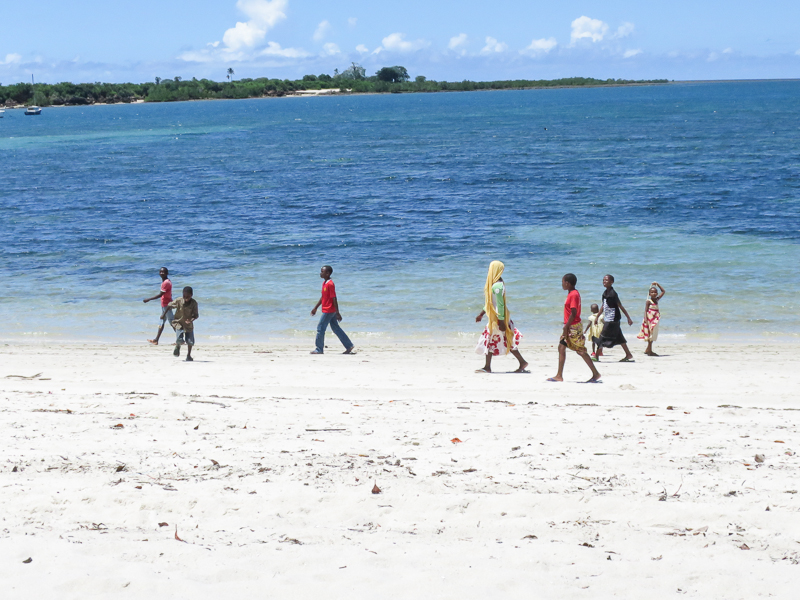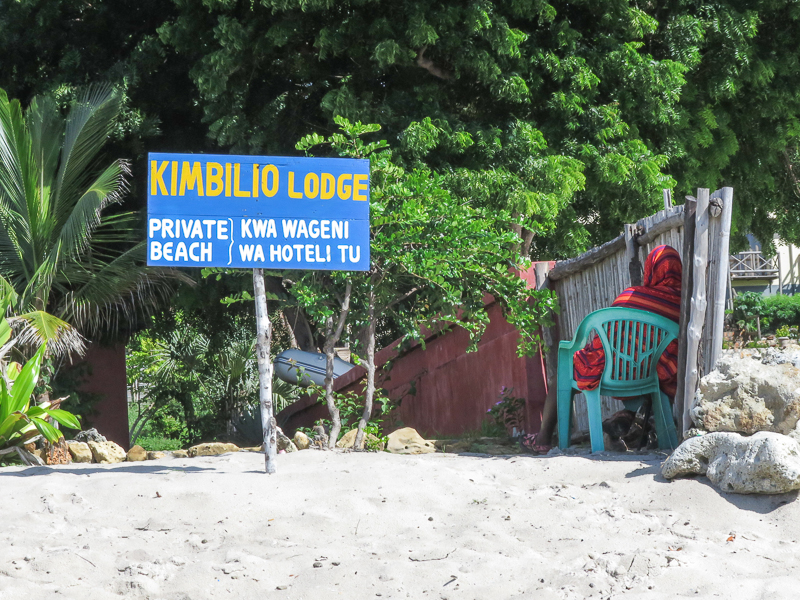Due to an aforementioned hit from rainy season, original plans to go on a self-drive safari through nearby Mikumi and hiking in Morogoro a couple weekends ago were called off at the last minute. And what is I am sure a saying somewhere in the world, when the jungle won’t work, pack up and head to the beach.
So after a dinner party with friends where the conversation led to stories of a successful road trip to Kilwa, it was settled. Kilwa is a small fishing village (there seem to be so many in Tanzania) about 300km south of Dar es Salaam, along the main (only) highway, B2. Like any other road trip from Dar, getting out of the city is half the battle— it took us about 45 minutes to get out of the city proper, and that was considered a good day.
After 4 chicken sandwiches, one roadside restroom stop, a short stretch of unpaved road, lots of checkpoints, countless speed bumps, and one split second where I thought our car was going to end up nose diving into a deep mud pit, we made it to the little town of Kilwa.
Kilwa is a sad little story of a 14th century powerhouse (due to its strategic location between Africa and the Eastern Arab and Asian world), who rose to power under the rule of one former Persian prince who arrived in Kilwa town to purchase the neighboring island. Legend says he purchased the land for “enough silk to wrap around the circumference of the island”. Thereafter, great palaces and mosques were erected on the tiny island, and soon enough it became the seat of power in East Africa in the 15th and 16th centuries. After centuries of domination as a stopover for ships and tradesmen, it changed hands to the Arab, Portugusese, and eventually over to the Omanis.
That’s a quick, one-minute history of Kilwa. Today, it is far overshadowed by Dar’s large and deep water port. It’s island is now inhabited by local villagers who have since built up their farms and huts under the shadows of once-great mosques and castles. On mainland Kilwa, a small strip that is the center of town exists, with one bar, small single-standing shops propped under metal sheeting, two two-pump gas stations, one bank, one post office, and a few guesthouses scattered along the beach. We were witness to bustling weekend activity, as villagers walked back and forth the strip of beachfront, performed running exercises, played with their children in the shallow ocean bay, and in general gathered to hang out along the breezy shore.
We stayed in a beachfront property recommended by friends, a place run by an Italian woman who preferred the quaint quiet life of Kilwa even to the more glamorous paradises of Zanzibar and Fiji. The lodge itself was a perfect balance of rustic amenities and modern comfort–Housing were bandas that opened up to the beach, with sparse yet comfortably furnishings: the locally familiar four-post beds and mosquito net, along with large open showers that pumped out hot water at any time of day and electricity available at any time. No a/c was available, but powerful fans were supplied in the rooms and a strong island breeze swept through each night.
Speaking of the night, with a waxing crescent moon our party of four saw more stars than ever visible in Dar es Salaam; More stars than I’ve seen since spending time in Montana two summers ago. It was as if a careless painter completed a haphazard paint job, splattering droplets of white paint against a massive wall of black. With the lights off in our banda and no devices to connect to internet, the blackness and silence was completely humbling. It certainly called my attention to how much artificial stimulation is constantly present in my life, where every night in Dar there is always the glow of the security lights just outside my room, an a/c humming throughout the night, and my phone(s) sitting beside my bed and occasionally glowing upon the reception of an alert.
Both night and day, Kilwa was a nice break away from it all, and such a great road trip from Dar.




